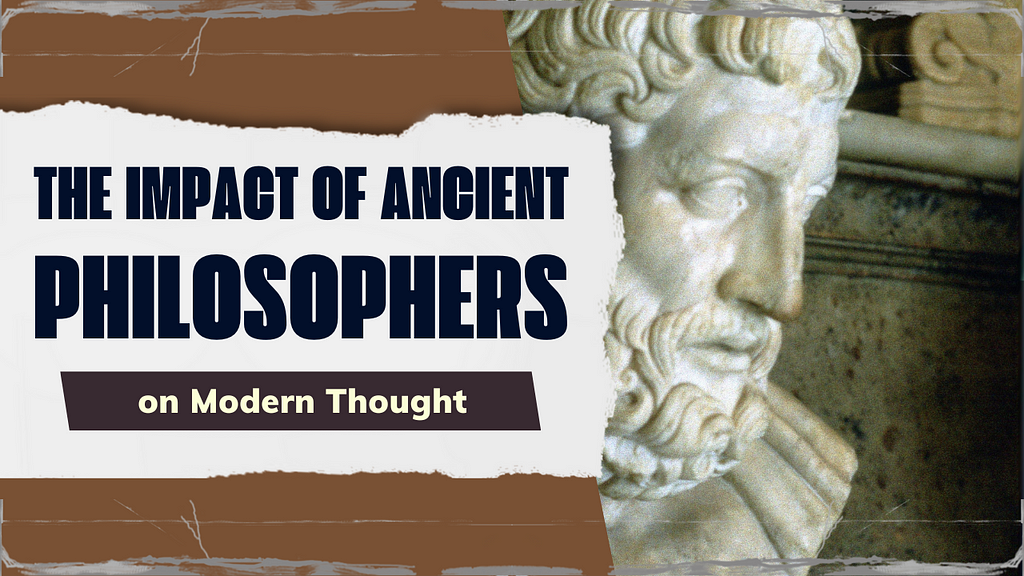
The rich tapestry of human thought has been woven over centuries, with threads of wisdom and insight passed down from one generation to the next. At the heart of this intellectual legacy are the ancient philosophers whose ideas have endured through time, shaping the way we perceive the world and ourselves. In this article, we will explore the profound impact of ancient philosophers on modern thought, examining key concepts and their enduring relevance.
1. Foundations of Ethics: Aristotle’s Virtue Ethics
Ancient Greece gave birth to one of the most influential philosophers in the realm of ethics — Aristotle. His concept of Virtue Ethics laid the foundation for moral philosophy. Aristotle argued that the path to a fulfilling life is through the cultivation of virtuous habits, finding a balance between excess and deficiency. This idea resonates in modern discussions on ethics, personal development, and character.
Example: In contemporary discussions on business ethics, Aristotle’s emphasis on virtues like honesty, integrity, and fairness is evident. Corporate leaders often draw inspiration from Aristotle’s teachings when crafting ethical frameworks for their organizations.
2. Epistemology and Rationality: Descartes’ Meditations
René Descartes, a 17th-century French philosopher, is often hailed as the father of modern philosophy. His work, particularly the Meditations on First Philosophy, laid the groundwork for epistemology — the study of knowledge. Descartes famously declared, “Cogito, ergo sum” (I think, therefore I am), asserting the primacy of individual reason and consciousness.
Example: The scientific method, a cornerstone of modern science, owes much to Descartes’ emphasis on systematic doubt and rigorous reasoning. The quest for empirical evidence and logical analysis in scientific inquiry reflects the enduring influence of Descartes’ philosophical principles.
3. Political Philosophy: The Legacy of Plato’s Republic
Plato, a student of Socrates, delved into the realms of politics and governance in his magnum opus, “The Republic.” In this seminal work, Plato explored the concept of the philosopher-king and the idea of an ideal state governed by reason. The echoes of his political philosophy reverberate in contemporary discussions on governance, democracy, and the role of intellectuals in society.
Example: John Rawls, a 20th-century political philosopher, drew inspiration from Plato’s ideas when formulating his theory of justice as fairness. Rawls’ influential work, “A Theory of Justice,” reflects the enduring impact of Plato’s insights on the structure of just societies.
4. Metaphysics and Existentialism: Influence of Søren Kierkegaard
While not ancient, Søren Kierkegaard, a 19th-century Danish philosopher, delved into existentialist thought, building on the foundations laid by earlier philosophers. Kierkegaard’s exploration of individual existence and the leap of faith in religious belief has left an indelible mark on modern existentialist thinking.
Example: Existentialist themes can be found in the works of 20th-century writers like Jean-Paul Sartre and Albert Camus. The idea of individual responsibility, freedom, and the search for meaning in an often indifferent universe reflects the influence of Kierkegaard’s existentialist philosophy.
The impact of ancient philosophers on modern thought is immeasurable, as their ideas continue to shape our understanding of ethics, knowledge, politics, and existence. The intellectual legacy of figures like Aristotle, Descartes, Plato, and even those who came later like Kierkegaard, serves as a guiding light for contemporary thinkers. As we navigate the complexities of the modern world, we find ourselves standing on the shoulders of these intellectual giants, drawing inspiration from their timeless insights into the human experience.
The Impact of Ancient Philosophers on Modern Thought was originally published in EpicurusEcho on Medium, where people are continuing the conversation by highlighting and responding to this story.